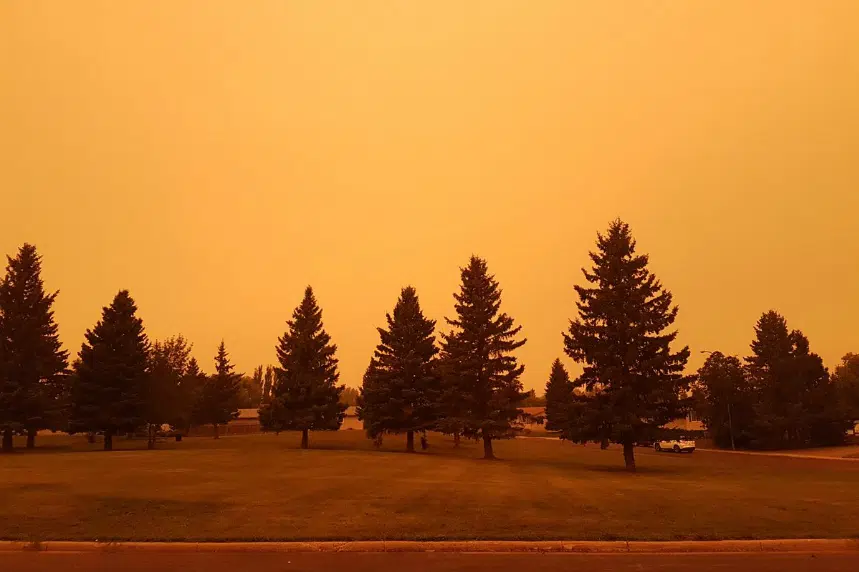Saskatchewan beekeepers could face a below-average season due in part to wildfire smoke from British Columbia, but experts say they’re unlikely to see major losses.
Simon Lalonde, president of the Saskatchewan Beekeepers Development Commission, said bees slow down their production when heavy smoke hangs in the air and the bees can’t fly as far to forage. Smoke can also have an impact on flower growth, Lalonde said, which means beehives won’t have as much nectar available.
“It’s really tough to say how much impact it has on the honey season,” he said. “There’s so many factors that go into it.”
Lalonde said his operation near Saskatoon will likely produce about 70 per cent of their average honey crop this year, but most of the losses were due to the long, cold winter.
Saskatchewan’s bees were getting close to the end of their honey producing season when the worst of the smoke drifted into the province, he said, so the smoke-related losses could have been much worse.
Graham Parsons, a pollinator and biosecurity specialist with the Saskatchewan Ministry of Agriculture, said Saskatchewan beehives will produce slightly less honey this year due to a combination of factors, including smoke. The long winter, chilly spring and dry conditions seen in some areas of the province also negatively affected production, he said, but things are far from catastrophic.
“I doubt we’ll be far off our five-year average,” he said.
The average bee colony in Saskatchewan produces about 190 lbs of honey per year, Parsons said. This year, he estimated the average will likely be between 170 and 180 lbs per colony.
While Saskatchewan may only see a minor drop in honey production this year, parts of British Columbia are seeing significant declines. One producer in the Kelowna area estimated his operation will see as much as a 40 per cent drop in production this year, the worst he’s seen in two decades of beekeeping.
–With files from The Canadian Press.











